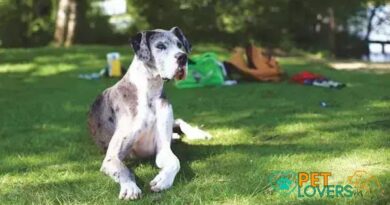What is Ronda
What is Ronda?
Ronda is a term that often refers to a specific type of dog training or behavior management technique. This method is particularly popular among dog trainers and owners who seek to establish a strong bond with their pets while ensuring they are well-behaved and responsive. The essence of Ronda lies in its focus on positive reinforcement, which encourages desired behaviors through rewards rather than punishment.
The Principles of Ronda Training
At the core of Ronda training are several key principles that guide the process. These include consistency, patience, and understanding canine behavior. By applying these principles, dog owners can create a structured environment that fosters learning and growth for their pets. Ronda emphasizes the importance of recognizing and rewarding good behavior, which helps dogs associate positive actions with positive outcomes.
Benefits of Ronda for Dog Owners
One of the primary benefits of Ronda is the enhancement of the human-animal bond. When owners engage in Ronda training, they not only teach their dogs commands and tricks but also build trust and communication. This method can lead to a more harmonious household, as well-trained dogs are often less prone to behavioral issues. Additionally, Ronda can improve the overall well-being of dogs, as mental stimulation is crucial for their happiness.
Implementing Ronda Techniques
To effectively implement Ronda techniques, dog owners should start with basic commands such as sit, stay, and come. Using treats, praise, and play as rewards can significantly enhance the training experience. It’s essential to keep training sessions short and engaging to maintain the dog’s interest. Gradually, owners can introduce more complex commands and tricks, ensuring that each step is built on the previous one.
Common Misconceptions about Ronda
Despite its effectiveness, there are several misconceptions surrounding Ronda. Some people believe that positive reinforcement is not as effective as traditional training methods that rely on corrections. However, numerous studies have shown that positive reinforcement leads to better long-term results and a more positive relationship between dogs and their owners. Understanding these misconceptions is vital for anyone considering Ronda training.
Ronda and Socialization
Socialization is a crucial aspect of Ronda training. Exposing dogs to various environments, people, and other animals helps them develop confidence and reduce anxiety. Ronda encourages owners to incorporate socialization into their training routines, allowing dogs to learn appropriate behaviors in different contexts. This holistic approach ensures that dogs are not only trained but also well-adjusted members of society.
Ronda for Specific Breeds
While Ronda can be beneficial for all dog breeds, certain breeds may respond particularly well to this training method. Breeds known for their intelligence and eagerness to please, such as Border Collies and Golden Retrievers, often thrive under Ronda techniques. Understanding the unique traits of different breeds can help owners tailor their training approach, maximizing the effectiveness of Ronda.
Challenges in Ronda Training
Like any training method, Ronda comes with its challenges. Some dogs may be more stubborn or easily distracted, making it difficult to maintain focus during training sessions. Owners must be prepared to adapt their techniques and remain patient. Consistent practice and a positive attitude are essential for overcoming these challenges and achieving success with Ronda.
Resources for Learning Ronda
For those interested in exploring Ronda further, numerous resources are available. Books, online courses, and local training classes can provide valuable insights and guidance. Engaging with a community of dog owners and trainers can also enhance the learning experience, offering support and shared experiences that enrich the journey of Ronda training.


